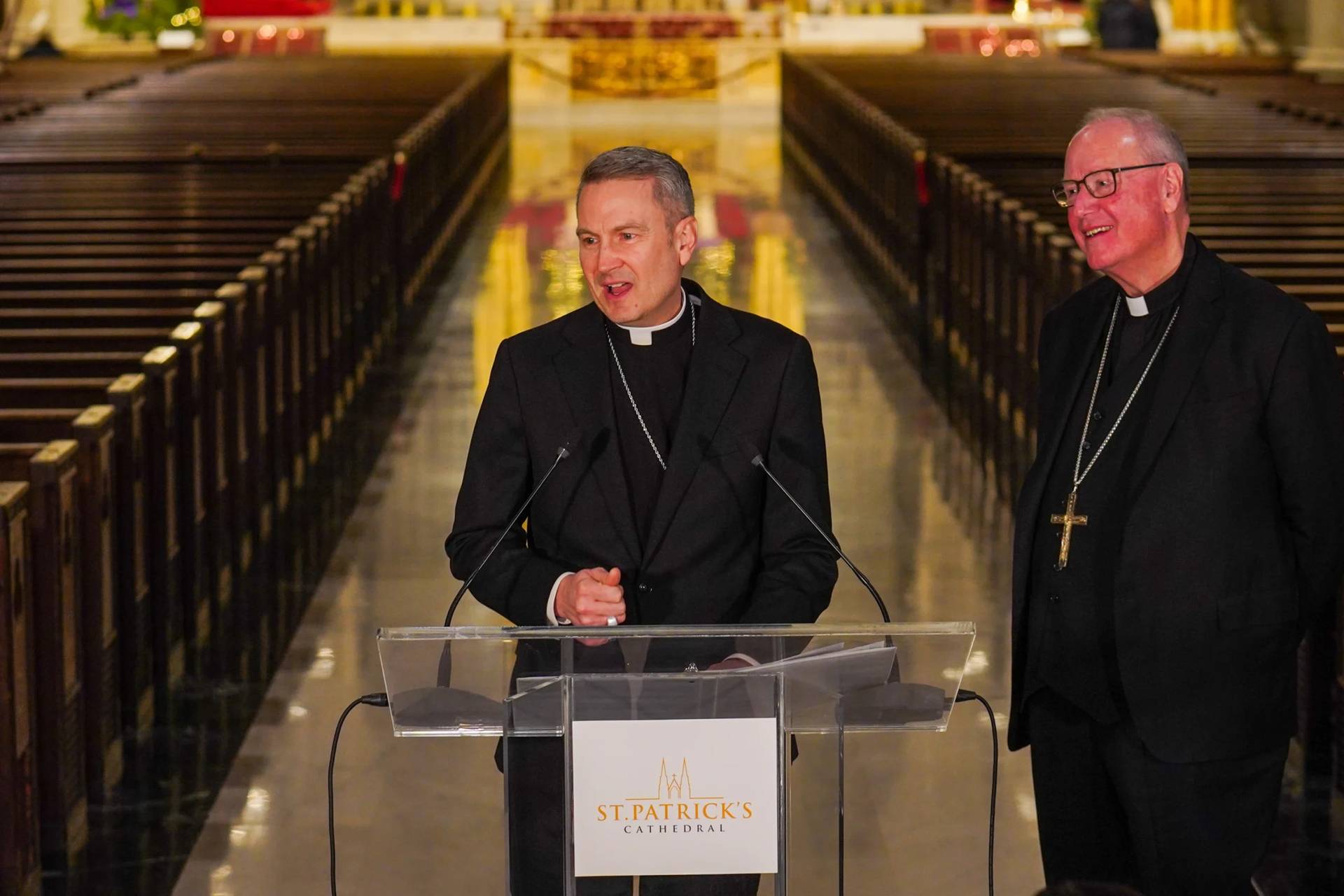[Editor’s note: Cardinal Donald Wuerl of Washington, who participated in the two Synods of bishops on marriage and the family that preceded Pope Francis’s 2016 apostolic exhortation Amoris Laetitia (“The Joy of Love”), responded via email to questions on the papal document from Mark Zimmermann, the national correspondent for Crux who also serves as the editor of the Catholic Standard newspaper of the Archdiocese of Washington. The interview of Cardinal Wuerl for Crux followed a January 6 letter that Washington’s archbishop wrote to priests of the archdiocese on implementing Amoris Laetitia, and a talk that he gave about the exhortation at a January 21 workshop for the archdiocese’s seminarians.]
Crux: You recently wrote to priests and helped lead a workshop for seminarians on Amoris Laetitia. What do you see as the key pastoral implications of Amoris Laetitia for priests and future priests?
Wuerl: Amoris Laetitia presents the longstanding teaching of the Church on marriage and the implications of married life, but also the Church’s teaching on conscience and on the role of the priest as both teacher and pastoral companion.
None of this is new, but what I believe is helpful in Amoris Laetitia is our Holy Father Pope Francis’s call to make sure that we are attentive to both teaching and pastoral accompaniment, and that we are aware that the actual conscientious decision is the action of the individual person.
The priest’s role is to help that person form their conscience, but not replace it.
You have said that in Pope Francis’s apostolic exhortation on marriage and the family, you can hear the voice of a pastor. How does Amoris Laetitia reflect the pontiff’s approach to ministry?
Pope Francis clearly preaches as much by his deeds as by his words. He is saying to all of us that the witness is the best teacher of the faith.
In this he echoes something that Pope Paul VI said in Evangelii Nuntiandi, “Modern man listens more willingly to witnesses than to teachers, and if he does listen to teachers, it is because they are witnesses.”
Our Holy Father is saying we must walk with our people and witness the love and compassion of God for them.
Much of the media coverage on Amoris Laetitia has swirled around the question of it seeming to open the door for some divorced and civilly remarried Catholics to receive Communion. What do you think has been the biggest misconception about Amoris Laetitia and that issue?
The focusing on one paragraph of the apostolic exhortation, and one interpretation of it, seems to me to have missed the fullness of the teaching and the beauty of the encouragement in Amoris Laetitia.
It has long been the teaching of the Catholic Church that the judgment about reception of Communion falls on the person receiving Communion. They make a conscientious judgment about the state of their soul before God. Our task as priests is to help them form their conscience and be enlightened by the wisdom of God and the teaching of his Church.
What I do not find helpful is trying to emphasize one aspect of the Church’s mission – her canonical direction, as if it were the only aspect of the mission Christ has entrusted to his Church for the salvation of souls.
Different bishops around the world have been issuing their own guidelines for implementation of Amoris Laetitia, and they don’t all say the same thing. Do you see that as confusion or healthy diversity?
I believe that when you read Amoris Laetitia, what you see is a balanced presentation of both the teaching of the Church on marriage and the teaching of the Church on the role of conscience and personal appropriation of the teaching.
Some apparently feel more comfortable with emphasizing the law of the Church. They tend to read the document with a certain legalism, and our Holy Father, himself, has referred to this. There are others who read the document from a pastoral perspective, mindful of the teaching but very much aware of the role of the priest in accompanying and helping a person arrive at a proper conscientious judgment.
I think it really is just a question of emphasis, and where one puts the emphasis on two aspects of the same basic Church teaching.
What practical impact do you hope that Amoris Laetitia will have on parish marriage and family programs?
Our Holy Father calls us to renew all of our efforts at catechesis and accompaniment and he tells us in Amoris Laetitia that this has to go on at every level, beginning with the catechesis of young people on the nature of marriage.
But we continue for a long time after, in fact life long, walking with people and helping them appreciate all the more the revelation of God’s mercy and the beauty of marriage.”
What impact do you hope that the papal document will have on Catholic married couples, from those preparing for marriage, to longtime married couples, to those experiencing difficulties?
The apostolic exhortation, like every previous apostolic exhortation, is a part of the papal magisterium and therefore should help all faithful Catholics grow more deeply in their faith and certainly be a tool in the hands of priests who are trying to accompany the faithful entrusted to their care.
I would think that one way that this document will have an impact on Catholic married couples is in the efforts of the Church to better prepare them to understand what marriage is, to walk with them immediately after their marriage and continue to be with them as they make their way through married life and particularly when they reach difficult moments.
That accompaniment has to be compassionate, caring, understanding as well as technically and legally formed. Our priests already minister with great understanding of the human condition and try to bring to that the mercy of God and Jesus which challenges us to reflect in our lives and ministry.
You encouraged the archdiocese’s seminarians not just to rely on media accounts, blogs or tweets to learn about Amoris Laetitia, but to read it slowly, carefully and prayerfully. But if you were to tweet about Amoris Laetitia, what would you say about it, in 140 characters or less?
“Amoris Laetitia, the voice of Christ’s Church, calls married couples to always walk in faith and love and be open to God’s mercy.”
The Archdiocese of Washington’s resources on Amoris Laetitia, including a video series and the texts of Cardinal Wuerl’s talks on the document, can be found online. That website also includes “Reflections on Amoris Laetitia,” a document produced by the Office ofPriest Vocations and Formation of the Archdiocese of Washington.












